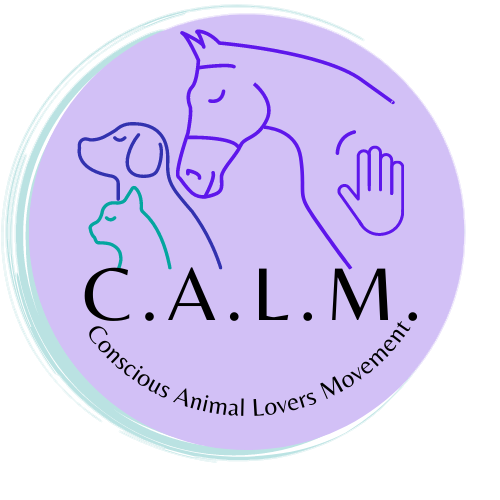Allen M. Schoen, D.V.M., M.S.
A number of years ago returned from a course titled “Botanical Medicine for Doctors” at Columbia Medical School in New York. As the token veterinarian amidst 150 human physicians, it was fascinating to see how various herb remedies that I have been using with pets for over fifteen years are becoming quite mainstream today in human medicine. Dr. Andy Weil was one of the keynote faculty at this course. He shared similar enthusiasm as well as concerns for botanical medicine that I have shared with you in earlier articles.
Botanical medicine, also commonly known as herbal medicine, shows some exciting potential in animal health care. However, significant concerns are noteworthy. First of all, we do not know definitive dosages for dogs and cats. All dosages were developed for mice, rats and people. Essentially, we are adjusting these dosages to the weight of our pets. This is not unreasonable to do, but with a few caveats. Cats often have unique reactions to numerous medications and many can actually be toxic to cats. For instance, aspirin is deadly to cats at normal human or even dog dosages. Also ephedra, a commonly used herb for asthma in people, can also be toxic at reasonable dosage for cats with feline asthma. Therefore, if you are thinking that you can use a human herbal formula for human asthma on your cat with feline asthma, think twice! Most of the human formulas have ephedra in them. There may be and probably are other herbs that may be potentially toxic to cats. Make sure you discuss any herbal products with a holistically oriented veterinarian in your area.
Other challenges in using herbs include the question of herbal quality, sources, percentage of active ingredients, pesticide contamination, and drug interactions. Herbal quality is a real issue. Mark Blumenthal of the Herb Research Foundation is completing an evaluation of hundreds of ginseng formulas currently available. He was amazed how many of them had virtually no active ingredients of ginseng. So you may think that you are giving your dog or cat ginseng as a tonic and feel that it is not working, when your pet may actually not be getting any ginseng at all! Your best bet is to look for standardized extracts with guaranteed potency, or check again with a veterinarian trained in herbal medicine. I always try to use herbal formulas from ethical companies that use organically raised herbs wherever possible and only fresh herbs that are produced without deleterious effects to the culture or environment of any country. These days there are a number of reputable companies that have developed herbal formula’s specifically for animals.
Taking all these concerns into consideration, certain herbal remedies can be beneficial for our pets with judicious use. There is always the temptation to use the “herb of the month club” recommendation. One should always consult with a veterinarian trained in the use of herbs. Herbs and herbal formulas have been documented to be beneficial as tonics for cardiovascular conditions, gastrointestinal, dermatologic, immune- mediated as well as musculoskeletal conditions and behavior problems.
Let’s discuss some tonic herbs now. Tonic herbs help normalize bodily functions and increase resistance to stress. “Tonic” actually comes from the word “tone”. Tonics tone or tune up our bodies defense mechanisms. There are no real tonics in western medicine. Tonics can benefit any pets who are chronically ill, debilitated or older geriatric patients who lack energy and vitality. These herbs are also called “adaptogenic” meaning that assist in the modulation of the endocrine system. Ginseng is probably the best known of tonic herbs. Ginseng is considered the supreme tonic in chinese medicine. It increases energy, longevity, skin and muscle tone and bone strength. There are different types of ginseng. American (panax) ginseng is preferred for female patients and older pets. Siberian (eleutherococcus) ginseng is one of the best adaptogens, or stress-protective tonics. It improves resistance to infections as well as stamina in pets. Adjust the dosage by weight from the human products used to the weight of your pet. For instance if it is in a capsule and the recommended dosage in two to three capsules twice a day for an adult person and you have a fifty pound older dog, one may give one capsule twice a day. If you are administering tinctures, be careful with cats, because they often times have too high an alcohol content for cats, so you would want to boil off the alcohol before administering or dilute it greatly. If you are using ginseng long term, use for only two to three months at a time and then give a break and stop it for a few weeks. Again, consult with a naturally trained veterinarian.
Ashwaganda is an Indian (ayurvedic) herb that is the Indian version of ginseng. It is less expensive than ginseng and more abundant. It also can be quite beneficial in the elderly, debilitated or recovering dog or cat. Again, dosages need to be adjusted from human recommended dosages.
Dong quai (also spelled tang keui), another Chinese tonic, contains volatile oils that assist in the balancing of hormones. It has been mistakenly called “female ginseng”. In China, it is used by both men and women even more often than ginseng. It is a good general tonic for the female reproductive system and may be beneficial for unspayed dogs and cats, especially for weakness after giving birth. I use it as a tonic in dogs with chronic diseases such as liver disease, cancer, and general old age problems. It is related to carrots, parsnips, fennel and other common edibles and therefore nontoxic. It too is less expensive than ginseng. In Chinese medicine it is usually used in combination with other herbs.
Astragalus, another excellent Chinese herbal tonic, enhances immune function. We discussed this herb in previous articles on herbal antibacterial and antiviral remedies. It can be used similar to other tonics for the elderly or debilitated pet. I recommend it for all my cancer patients, both those undergoing conventional treatment and those who have elected not to. It can be taken regularly. I also use it in treating viral infections and any chronic disease. It is completely nontoxic and animals normally respond quite well.
There are tonic herbs that are specific for certain organs or organ systems. Hawthornberry for instance is an excellent heart tonic. It can be used for just about any heart problem from cardiomyopathy in dogs and cats to congestive heart failure or arrhythmias. However, If your pet is on digoxin, a very potent heart medication originally derived from the plant foxglove, you want to make sure you work with your veterinarian, because it actually potentiates the effects of digoxin. It may require lowering the dosage of digoxin, so again, it is vital that you monitor this with your veterinarian.
May you and your animal friends be healthy and happy!
No article can replace the services of a trained veterinarian. This article is not intended to encourage treatment of illness, disease, or other medical problems by the layman. Any application of the recommendations set forth in this article is solely at the reader’s discretion and risk. You should consult a veterinarian concerning any veterinary medical or surgical problem. If a veterinarian is caring for your pet, for any condition, he or she can advise you about information described in this article.

